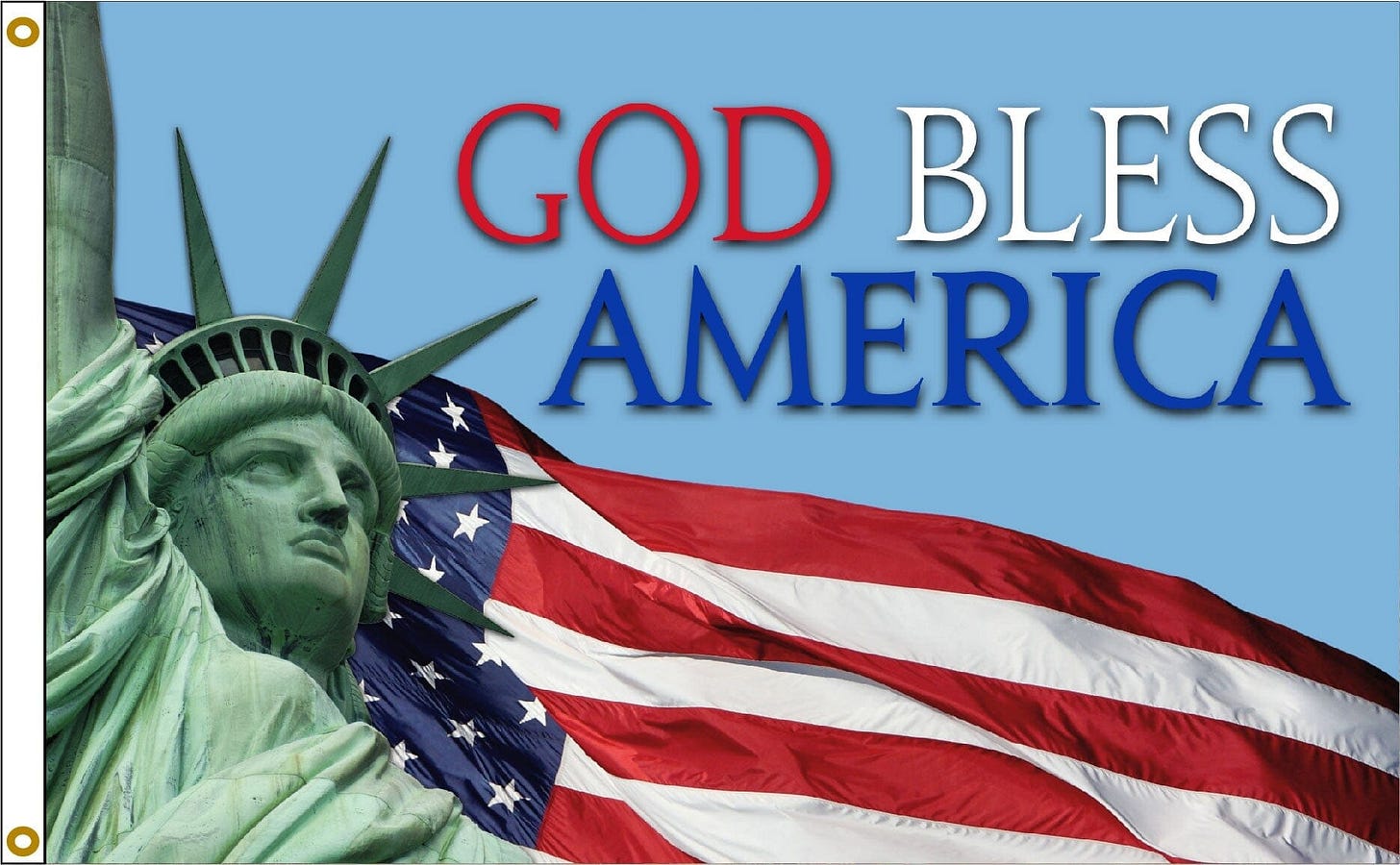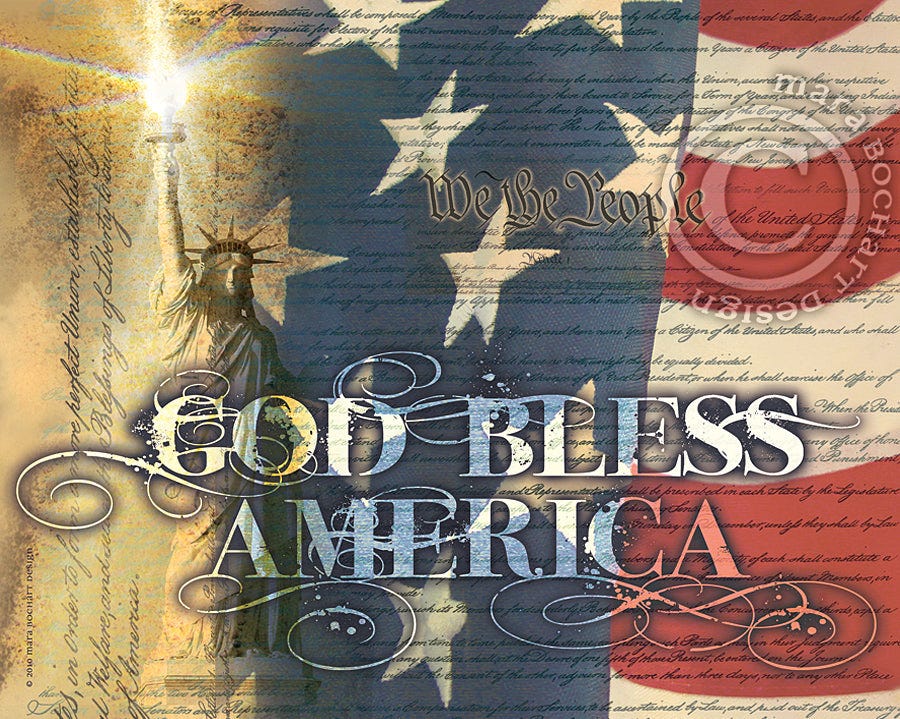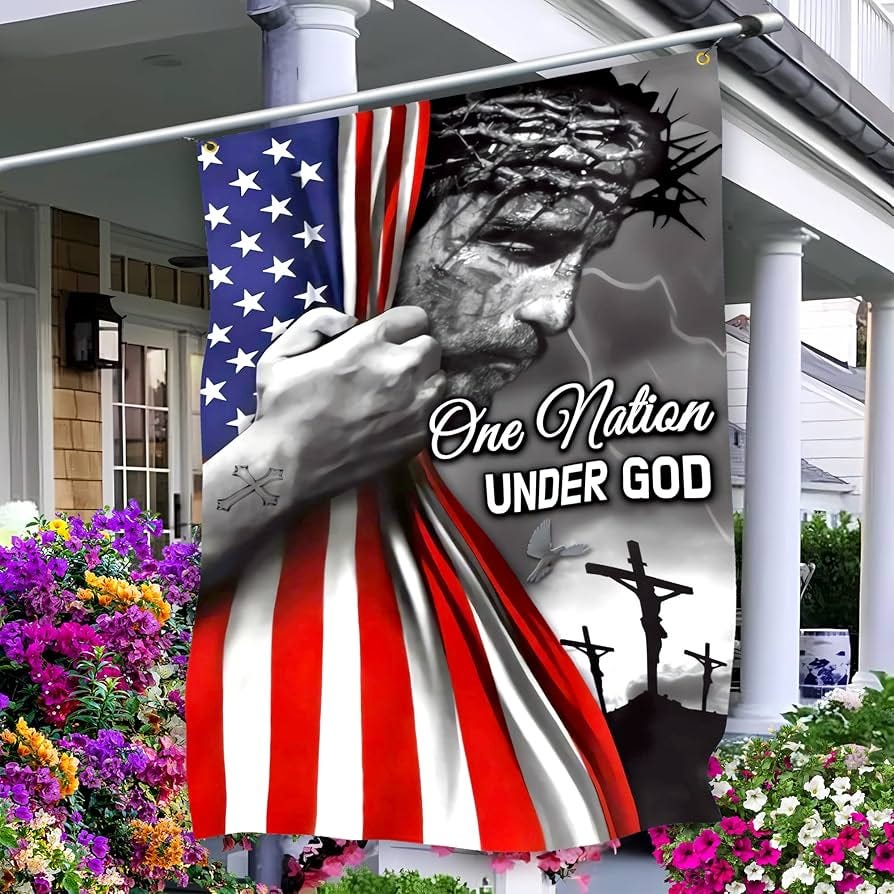No God, No Freedom
The Forgotten Link Between Faith and Liberty
“Where there is no vision, the people perish” (Proverbs 29:18). But what happens when a civilization loses not merely its vision, but its very God? What becomes of man when he dethrones his Creator, silences His Word, and attempts to construct society on the shifting sands of his own will? The answer is already unfolding before our eyes, in collapsing families, confused children, decaying institutions, and the shrill chaos of an orderless age. The West, once the beacon of Christian civilization, is now a wounded empire of spiritual amnesia, groping in the dark for meaning after discarding the very source of it.
This past week, Western headlines once again confirmed the obvious: we are no longer a Christian civilization in any meaningful sense. The headlines swirl, gender clinics expanding in public schools, the continued push to normalize euthanasia for depression, and courts wrestling with whether parents can even stop their children from undergoing body-altering surgeries. We are watching, in real time, what Aleksandr Solzhenitsyn warned when he said, “Men have forgotten God; that’s why all this has happened.”
Let us not be deceived, these are not merely political or psychological issues. They are fundamentally theological. They are the final fruits of a civilization severed from its roots.
Man’s Freedom Is Rooted in God
The modern world wants freedom without God, rights without responsibilities, love without truth, and progress without sacrifice. It demands autonomy but does not understand its cost. “Freedom,” writes Pope John Paul II, “consists not in doing what we like, but in having the right to do what we ought.” In the classical Christian vision, freedom is not the absence of restraint but the capacity for virtue. It is not liberation from authority, but the rightful alignment of human will with divine order. That is why Saint Paul teaches, “For freedom Christ has set us free; stand fast therefore, and do not submit again to the yoke of slavery” (Galatians 5:1). He speaks not of political chains, but of sin.
Modernity, however, has twisted this. Having rejected the Creator, it no longer understands the creature. In denying the divine law, it loses the meaning of human law. Without a transcendent standard of good, every appetite becomes a right, every disorder a protected identity, and every restraint a form of oppression. The Psalmist warned: “The fool says in his heart, ‘There is no God.’ They are corrupt, they do abominable deeds” (Psalm 14:1). That is not a poetic insult, it is a prophetic diagnosis.
Faith Built Civilization, Unbelief Dismantles It
There is a reason why hospitals, universities, human rights charters, scientific method, and even literacy flourished in Christian lands and not pagan ones. The Church’s teachings about the imago Dei, that man is made in the image and likeness of God (Genesis 1:26), provided the philosophical and theological foundation for the dignity of the human person, for the rights of the poor and the weak, and for the elevation of reason and conscience. This is why historian Tom Holland, an agnostic, writes in Dominion: “It is the crucifixion that, despite everything, has proved so potent a symbol. Even as belief in God has faded across the West, the assumptions of Christendom remain deeply embedded.”
Yet in our arrogance, the post-Christian world wants to enjoy the fruits of the Gospel while cutting down the tree that bore them. We invoke “human rights” while denying the divine Author who gives them. We celebrate equality while undermining the only worldview that ever made equality reasonable. The secularist plucks the fruit of the Christian vision and pretends it grows naturally on the tree of evolution or reason or the state. But the fruit withers when detached from the root.
In this, we echo the tragic cry of Israel in the time of the Judges: “In those days there was no king in Israel; everyone did what was right in his own eyes” (Judges 21:25). A lawless people is not one without rules, but one without righteousness.
The Idolatry of the Self
The sin of Eden was not just eating fruit, it was attempting to define good and evil apart from God. “You will be like God,” the serpent promised (Genesis 3:5). That ancient lie is now the central dogma of modern man. He does not need to build golden calves anymore; he builds identities. He worships at the altar of self. The sacred is now the autonomous individual, and to question that individual’s desires is to commit heresy against the new religion of self-definition.
But autonomy is not the same as authenticity. Without reference to truth, the autonomous self becomes a tyrant, not a saint. And a culture built on the whims of individual identity is a culture without cohesion, memory, or destiny. It becomes, in the words of Benedict XVI, “a dictatorship of relativism.”
Nowhere is this clearer than in the sexual revolution, the most successful revolution in history precisely because it had no battlefields, only broken homes, mutilated bodies, and shattered souls. Abortion, pornography, gender ideology, hookup culture, all are sacraments of a new paganism that canonizes pleasure and crucifies sacrifice. And yet, the modern heart is still restless, still aching, because, as Augustine wrote, “You have made us for yourself, O Lord, and our heart is restless until it rests in You.”
The Loss of Fathers, the Collapse of the Polis
There can be no civilization without fathers, biological, spiritual, and civic. But we have killed the Father in heaven, and so we no longer know what it means to be fathers on earth. As G.K. Chesterton said, “When we cease to believe in God, we do not believe in nothing, we believe in anything.”
In America alone, fatherlessness is now epidemic, and its social consequences are catastrophic: crime, poverty, depression, suicide, addiction. But these are not merely social ills. They are signs of moral and spiritual orphanhood. When the voice of the Father is silenced, the children cry in the wilderness. And when there are no fathers to teach law, love, and sacrifice, the polis disintegrates.
Civic liberty requires a moral people, and moral formation begins in the home. That is why the Founders, despite their theological differences, agreed on this point. George Washington warned, “Reason and experience both forbid us to expect that national morality can prevail in exclusion of religious principle.” John Adams insisted, “Our Constitution was made only for a moral and religious people. It is wholly inadequate to the government of any other.”
Secular democracy without transcendent moral anchors becomes soft totalitarianism, a state that legislates virtue not from truth but from popular whim, or worse, elite ideology. It can no longer protect the soul because it no longer believes in one.
The Heavenly City Still Stands
Yet there is hope. Not in a return to some imagined golden age of the past, but in the enduring and unconquerable truth of the Gospel. Christ has not abdicated His throne. The Church, though wounded and weary, remains the Bride of the Lamb. And while the City of Man collapses in confusion, the City of God endures in light.
Saint Augustine, in his magisterial City of God, reminds us that every human society must choose between two loves: “the love of self to the contempt of God, or the love of God to the contempt of self.” One builds Babylon, the other builds Jerusalem. One leads to chaos, the other to communion. One exalts pride, the other kneels in adoration.
The choice is before us still.
Rebuilding Starts with Repentance
What is the way forward? It is not more policies, programs, or partisan victories, though those have their place. It is repentance. It is the return of the prodigal son. It is the cry of the heart that has tasted the pig’s husks of secularism and longs again for the feast of the Father’s house. “If my people, who are called by my name, humble themselves, and pray and seek my face, and turn from their wicked ways,” says the Lord, “then I will hear from heaven, and will forgive their sin and heal their land” (2 Chronicles 7:14).
Revival will not begin in parliaments but in parish pews, not in city halls but in confessionals. It begins when men lead their homes in prayer, when priests preach truth without fear, when mothers teach children to love the Lord, when bishops shepherd rather than accommodate.
If we would save civilization, we must once again proclaim the Gospel, not as a lifestyle option or therapeutic program, but as the thunderous truth that God became man, died, and rose again to save sinners. And that the only hope for man is not in himself, but in the One who was crucified for him.
Christ or Chaos
T.S. Eliot once warned, “The choice before us is not between Christianity and another faith, but between Christianity and nihilism.” The longer the West postpones this choice, the more it decays into madness. There can be no middle ground. There is Christ or there is chaos. There is order or there is anarchy. There is the Word of God or the word of man.
Let us then take up our task, not in despair, but with burning clarity. We are not called to save Western civilization. We are called to be saints. And in doing so, we may yet light again the fire that once illumined the world.
“Let your light so shine before men,” said Jesus, “that they may see your good works and give glory to your Father who is in heaven” (Matthew 5:16).






